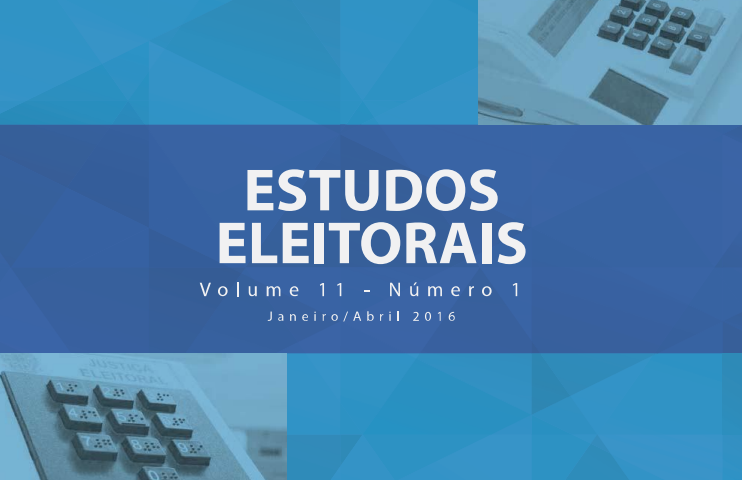
“They Were Seven-Headed Beasts” An Island in the Parnaíba Delta (Brazil) in the Spotlight of Transnational Tourism Promotion
29 de April de 2015
Representatives, Represented, and Social Media: Mapping the Informational Scheduling Mechanism
25 de August de 2017DISADVANTAGES OF THE PRINTED VOTE: MEMORY OF THE DIRECT ACTION FOR UNCONSTITUTIONALITY Nº 4543

The current study means to carry out a critical analysis of the Law nº
13.165/2015 which recreated the printed vote in Brazil, from the
perspective of the Federal Supreme Court’s decision rendered in
the Direct Action for Unconstitutionality nº 4.345. To accomplish the
proposed objective it will be started from the analysis of the Ministers
Cármem Lúcia (reporter) and Gilmar Mendes’ votes, which, although
agreed in merit, diverged on the arguments utilized to recognize the
unconstitutionality of the norm. Therefore, the true macula of the norm
derives from the possibility of breach in the vote’s confidentiality and
creation of unwanted distinction among the voters on the exercise of
suffrage. Likewise, it is not acceptable the principle of interdiction of
retrocession to be drawn back of the constitutionality control process
on the grounds that it turns out to elevate infra-constitutional norms to
the constitutional dignity.
Author: VOLGANE OLIVEIRA CARVALHO
Source: https://d1wqtxts1xzle7.cloudfront.net/65285089/inconvenientes_voto_impresso-libre.pdf?1609197710=&response-content-disposition=inline%3B+filename%3DDos_inconvenientes_do_voto_impresso_memo.pdf&Expires=1741368321&Signature=VzAWaB4DUMyHky39N8oH7Ba~xW0ai5GoyfON82o7fcGmgHChDcjfDiRlNGsx5O6pYC6ruv5tbi8updBP0ZnrmCBoMFQubHkFeyjWpEHpzSiaCgPtyjs7HglPLLtXjbXwtMmgDUtR~66aFAC0UVVDHB1vIPlOJyKAdgGyGyj–G2qPArbN4lzWdO6lCJ-re8zZbl43Ux5sdvfVF3VT-ZXDrWhOvW6KnY2s-PlAytLMSw5xNhWSPgcqRuct~tJ97BaPiHiW8FJfWHvgbW-iIUL9t-bHGSEHalAms2y8VXOm7tu457qIu1wb3i7~yDImmbYbLEJMQSAHysPKCZ9~uOGzw__&Key-Pair-Id=APKAJLOHF5GGSLRBV4ZA
